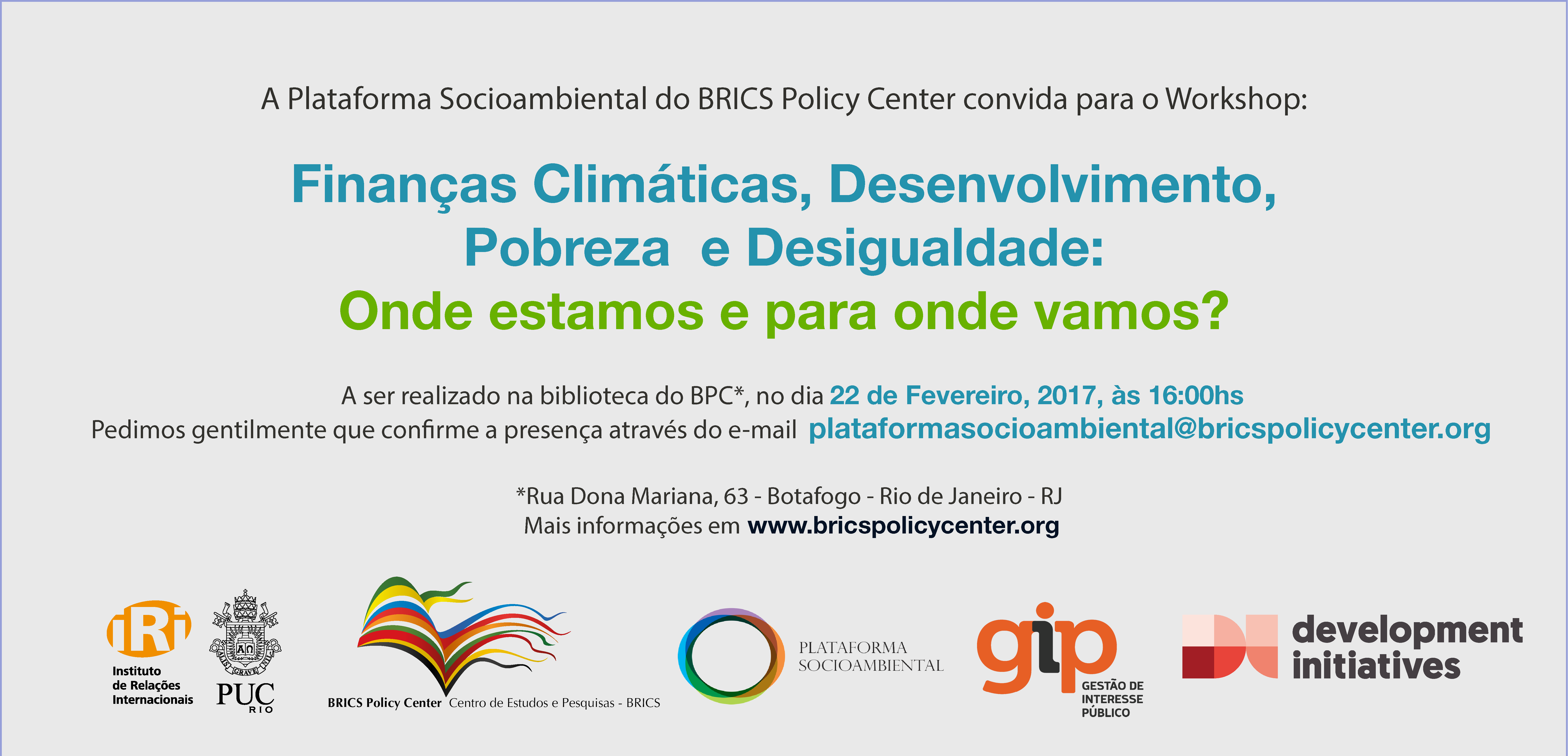
- This event has passed.
Climate Financing, Development, Poverty and Inequality: Where are we and where are we going?
22 de February de 2017 | 16:00 - 18:00

On February 22nd, 2017, the BRICS Policy Center (BPC) held the workshop “Finanças Climáticas, Desenvolvimento, Pobreza e Desigualdade: Onde estamos e para onde vamos?”. The event was an initiative of the Socio Environmental Platform of BPC, the Public Interest Management (GIP) and Development Initatives (DI) and had the participation of Rafael de Soler, from the Brazilian Ministry of Foreign Affairs, Mariela di Ciommo, from DI, Alice Amorim, from GIP, Paulo Esteves, General Supervisor of BPC and Maureen Santos, from the Socio Environmental Platform.
During the presentations, the participants highlighted themes such as the Brazilian contributions on the scope of climate negotiations, the relation between poverty, vulnerability and climate, the role of climate financing on the reduction of poverty and the misbalance of investments destined to the areas of mitigation and adaptating
Alice Amorim, for example, discussed how the “resources for climate financing generate positive externalities in other areas of development”, while Rafael de Soler, in the same line of argumentation, pointed out for the necessity to invest in the operation of climate financing that, according to Soler, “reveals itself below the expectations of developing countries”.
When talking about the human condition on the climate issue, Mariela di Ciommo analyzed how poverty makes people “more vulnerable to the impacts of climate change”, thus, making a connection between social and environmental problems. Complementing this point, Maureen Santos says that it is “important to shorten the gap between the institutional framework of climate financing and the local realities of affected communities”, adding the reality of people affected to the process of searching for a solution.
At the end of presentations, the participants answered questions from the audience – composed by scholars and representatives from civil society organizations – thus, opening space for a broader debate on the role of climate finance in the search for promoting a more just and sustainable development.

